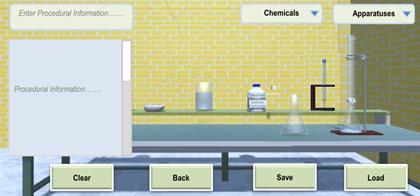A Subjective Study on the Effects of Dynamic Virtual Chemistry Laboratory in a Secondary School Education

Published 2023-04-13
Keywords
- Interactive Learning,
- Hands-on Experiments,
- Virtual Chemistry Lab,
- Dynamic Virtual Learning Environments
How to Cite
Abstract
Virtual chemistry laboratories (VCLs) are the alternative solutions of the physical laboratories, where students can virtually conduct their experiments with a lower cost, and in an efficient and safer way. Considering the importance of technology-enhanced learning and that of the experimental study, several VCLs have been proposed. However, the existing VCLs are static and only provide the simulation of pre-defined experiments, procedures, or safety procedures and cannot be adapted according to the students’ level or new experimental tasks. In this paper, we proposed a dynamic virtual chemistry lab (DVCL) where instructors or experts are allowed to add a new chemical experiment by adding its apparatus, chemicals, glassware, and mechanism or add something new to its properties. We conducted a subjective study with field experts to investigate the effect of proposed DVCL in secondary school chemistry education. During evaluation, twenty-seven field experts were participated and evaluated the proposed DVCL with system usability scale (SUS)-questionnaire and by a simple questionnaire. The results showed that the proposed DVCL is very helpful for students’ performance and mental modeling and also for effortlessly uplifting their knowledge for hands-on experiments.




